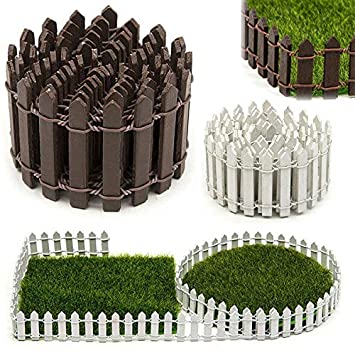When it comes to buying garden fence supplies, there are a number of factors to consider. From the type of material and style to the height and width of the fence, each decision can have a significant impact on the functionality, durability, and aesthetics of your outdoor space. IIn this blog, we’ll explore some of the key things to consider when buying garden fence supplies, including the fact that buying from a reputable supplier such as https://www.critterfence.com/garden-fence is so important.
- Purpose of the Fence
The first thing to consider when buying garden fence supplies is the purpose of the fence. Are you installing the fence for privacy, security, or to simply define the boundaries of your property? Depending on your needs, you may want to choose a different type of fence. For example, if you want a fence for privacy, you may opt for a solid wood fence or vinyl privacy fence, while a chain-link fence may be more appropriate for defining boundaries or keeping pets in your yard.
- Material
The material of the fence is another important factor to consider. There are a variety of materials available, each with its own pros and cons. Some of the most common materials for garden fences include wood, vinyl, aluminum, and chain-link. Wooden fences are a popular choice for their natural look and durability, but they require regular maintenance to prevent rotting and warping. Vinyl fences are low-maintenance and come in a variety of colors and styles, but may not be as sturdy as wood or metal. Aluminum fences are lightweight and durable, but may not offer as much privacy as other options. Chain-link fences are affordable and easy to install, but may not be as aesthetically pleasing as other types of fences.
- Style
The style of the fence is also an important consideration. Garden fences come in a variety of styles, from traditional picket fences to modern slat fences. The style you choose should complement the architecture and landscaping of your property. For example, a traditional picket fence may be more appropriate for a historic home, while a sleek metal fence may be a better fit for a contemporary home.
- Height and Width
The height and width of the fence are also important considerations. The height of the fence should be appropriate for its purpose. For example, if you want a fence for privacy, you’ll want a fence that is tall enough to block the view of your neighbors. The width of the fence should be determined by the size of your yard and the layout of your landscaping. A fence that is too wide or too narrow can look out of place and may not provide the necessary functionality.
- Installation
The installation process is another important factor to consider when buying garden fence supplies. Depending on the type of fence you choose, installation may require digging post holes, pouring concrete, or attaching panels to posts. Some types of fences, such as chain-link fences, may be easier to install than others, such as wooden fences. If you’re not comfortable with DIY installation, you may want to consider hiring a professional fence installer.
- Cost
Finally, cost is a key consideration when buying garden fence supplies. The cost of a fence can vary widely depending on the type of material, style, height, and width. Wooden fences tend to be more expensive than chain-link fences, while vinyl and aluminum fences may fall somewhere in between. It’s important to set a budget and choose a fence that meets your needs and fits within your budget.
In conclusion, buying garden fence supplies requires careful consideration of a number of factors. By taking the time to evaluate your needs, preferences, and budget, you can choose a fence that provides the necessary functionality, durability, and aesthetics for your outdoor space. Whether you opt for a traditional wooden fence or a modern vinyl fence, a well-chosen garden fence can enhance the beauty, privacy, and security of your home for years to come.

